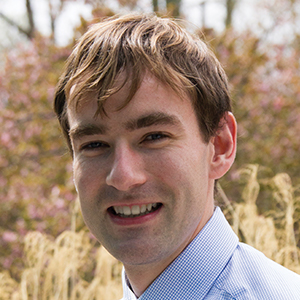Meet Cecilia Martinez
Tell us about your current career position.
I am an assistant professor at Michigan State University in the Department of Microbiology and Molecular Genetics. My lab group focuses on studying how one-carbon compounds, such as methane and methanol, are used by bacteria as a sole source of carbon and energy (methylotrophy). We are very excited, because by studying the biochemistry of this specialized but fundamental type of metabolism, we are identifying the role of uncharacterized cofactors, such as lanthanides, commonly known as rare-earth elements. Our long-term goal is to solve fundamental questions of how carbon distribution is regulated, enabling us to engineer bacteria for the production of value-added compounds, such as plastics and biofuels.
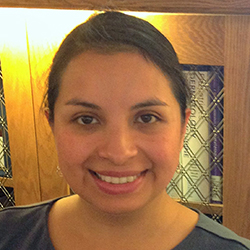 Cecilia Martinez
Cecilia Martinez
What are the key experiences and decisions you made that have helped you reach your current position?
I think the most fundamental decision for my current position was to come to the USA to get my Ph.D. in microbiology. I was an undergraduate student at the National University of Mexico majoring in chemistry, and I already had an offer to work in a lab in the biochemistry department for my graduate studies. Even though I loved my undergraduate project and the program in Mexico, I always wondered how research was done in developed countries, such as the United States. I decided to leave my family and friends and joined the microbiology program at the University of Wisconsin–Madison. It was a decision that allowed me to expand my training and learn from the very best. This is a place where working hard is highly rewarded, and that is refreshing and highly motivating.
How did you first become interested in science?
I liked science since I was a child. My mom and I would talk about immunology while cooking dinner together when I was young, and I remember thinking that the human body was the most amazing and enigmatic thing to study. I decided that I wanted to become a principal investigator when, in junior high school, I spent a summer doing research with Edelmira Linares in the biology department at the National Autonomous University of Mexico. I was involved in a project studying the medicinal plant Arnica. Linares’ passion for research was so inspiring. Her mentoring style made her so approachable, and it was an experience that allowed me to be engaged in the project and feel part of a team. After this experience, I knew that I wanted to be like her – that I wanted to motivate young students to do research while encouraging them to work as a team.
Were there times when you failed at something you felt was critical to your path? If so, how did you regroup and get back on track?
Yes, for sure. One major project I had when I was a graduate student was to characterize an S-adenosylmethionine (known as SAM for short) radical enzyme named ThiH, and I was scooped by a competing lab. I felt defeated. There was always the question, “Did I not work hard enough? Am I not skilled enough? Am I not smart enough?” My mentor, Diana Downs, motivated me to continue to work hard and not to get discouraged. In the end, she said, I was getting amazing training and the skills necessary to succeed. She was right. Her lab does such an elegant genetic work for microbial metabolic studies, and by analyzing the genetic data of several graduate students of her lab, we hypothesized that ThiC, then a poorly understood enzyme in thiamine biosynthesis, could be a SAM radical enzyme even when no canonical motif was evident. I used the same knowledge and training I had acquired with ThiH and was able to purify the enzyme in an active form, something that researchers had tried to do for more than 50 years. We were able to expand this family of enzymes and provide the framework to characterize one of the most enigmatic reactions in biology.
What advice would you give to young people from under-represented backgrounds who want to pursue a career in science similar to yours?
Never to get discouraged and to work hard. Sadly, it is inevitable that a peer will eventually make comments that will devalue your work, insinuating that an award, fellowship or job was granted because you are a minority. Those comments are so destructive. In the past, they made me doubt myself, and they affected my self-esteem. However, that is not the case anymore. If anybody says something like that now, I choose not to waste my time on such a comment, and instead I move on. I keep working hard and pay attention to what I love to do: research.
What are your hobbies?
Ha! Unfortunately, I do not have hobbies at this time. I have two little kids (ages 2 and 6) at home, so I try to spend as much of my free time as possible with them and my husband. We play so much together. It is so refreshing to act like a kid in my free time. When they become more independent, I would love to go back to training for triathlons, which was my hobby when I did not have kids. Hopefully very soon.
What was the last book you read?
The last book I read was by Mario Benedetti titled “La Tregua” or, in English, “The Truce.” It was a reminder of how life should not be monotonous and meaningless.
Do you have any heroes, heroines or role models? If so, describe how they have influenced you?
Yes, Frida Kahlo is one of them, and it is not only her art that inspires me. It is her path. I think she is a Mexican woman who broke so many barriers, socially and professionally, and she did so even when she was very sick. She inspires me to work for my goals and not to find excuses. Everything is possible when you work for it.
What is it that keeps you working hard and studying science every day?
The excitement for potential discovery and service. It is a privilege to be paid to test ideas. It is also a privilege and great responsibility to have the opportunity to teach young minds what others have discovered and how they have discovered it. Finally, this is the best time of my life. I finally get to run my own team, and they are young and motivated to expand our understanding of methylotrophy. This is the fun part!
Enjoy reading ASBMB Today?
Become a member to receive the print edition monthly and the digital edition weekly.
Learn moreGet the latest from ASBMB Today
Enter your email address, and we’ll send you a weekly email with recent articles, interviews and more.
Latest in People
People highlights or most popular articles
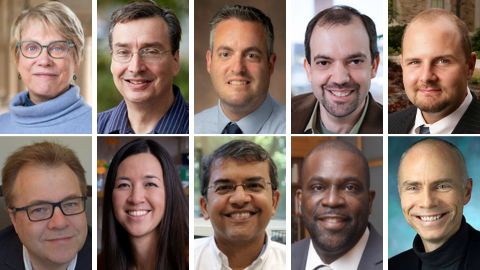
2024 voter guide
Learn about the candidates running for ASBMB Council, Nominating Committee, Publications Committee and treasurer.
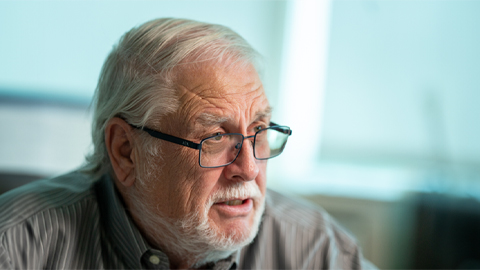
Charles O. Rock (1949 – 2023)
Colleagues and trainees remember a world expert in membrane lipid homeostasis.
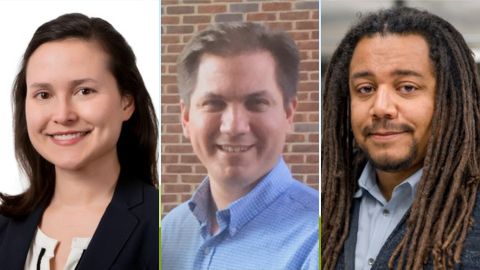
Honors for Clemons, Hatzios and Wiemer
Awards, honors, milestones and more. Find out what's happening in the lives of ASBMB members.
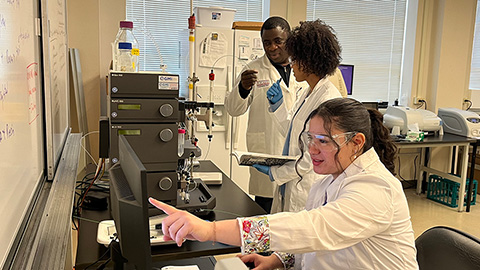
Touching the future from the bench
Scholar, scientist, teacher and mentor Odutayo Odunuga discusses the important roles of the institutional PI, his journey and his research.
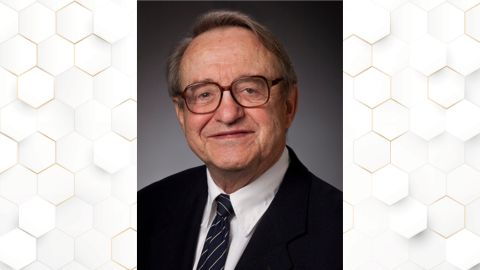
In memoriam: Darwin Prockop
He held leadership positions at multiple institutions and was known for his contributions to adult stem cell biology and cellular biology.
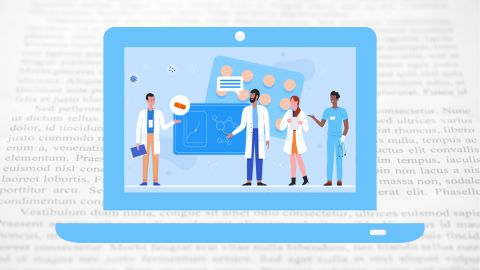
A look into medical writing
Our careers columnist spoke with Ashlea A. Morgan at Chameleon Communications International to get a sense of one type of work a medical writer can do.

